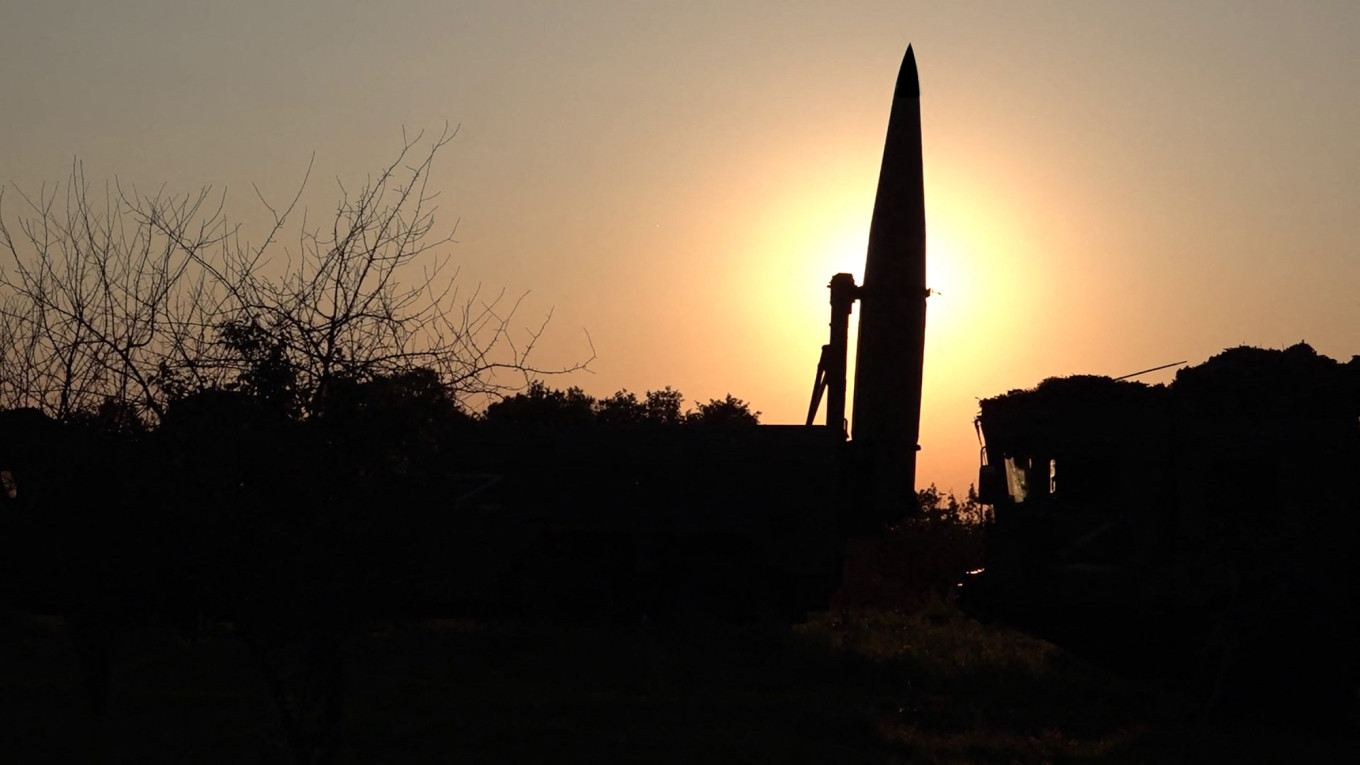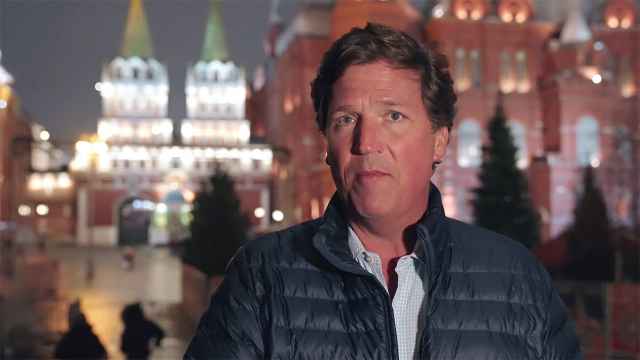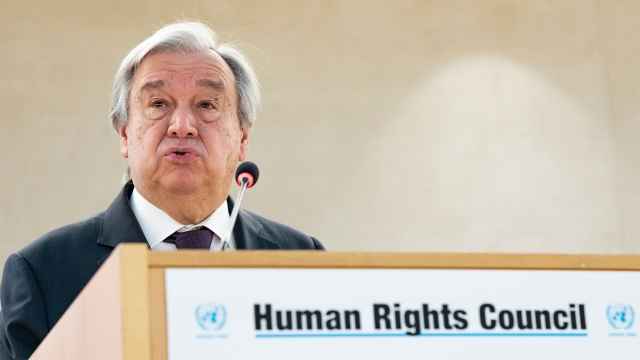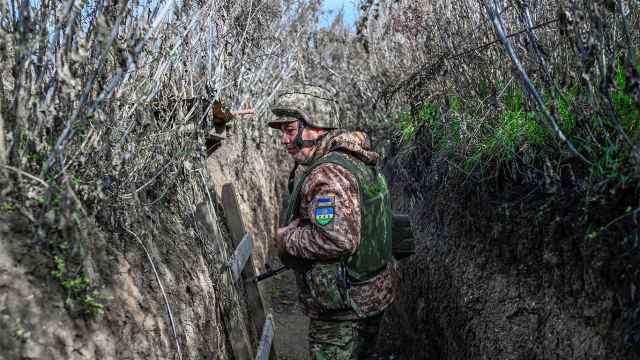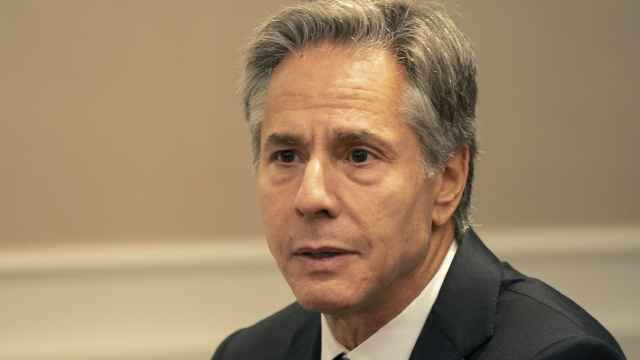President Vladimir Putin has approved updates to Russia’s nuclear doctrine which will lower the threshold for Moscow to launch a nuclear strike against its opponents, prompint the U.S. and Britain to condemn the Kremlin as "irresponsible."
Under the changes, an attack on Russian soil by a non-nuclear power could be grounds for nuclear retaliation if Russia’s opponent was backed by a nuclear-armed state. This is widely seen to be a reference to Ukraine and its Western allies.
Though the changes were announced in September, Putin’s sign-off came a day after Washington permitted Kyiv to use ATACMS to strike some targets in Russia — and hours before Moscow claimed Kyiv struck a military facility in the Bryansk region with the U.S.-made weapons.
Experts told The Moscow Times that the revised doctrine fits in with Russia’s attempts to deter Kyiv’s allies from ramping up support to Ukraine by creating greater ambiguity about when it would consider nuclear retaliation. Moscow has made over 200 references to its nuclear capabilities since the start of the war, according to an analysis by the Project on Nuclear Issues at the Center for Strategic and International Studies (CSIS PONI).
The first update to the playbook since 2020, the new document expands the number of scenarios in which Russia would consider using nuclear weapons and widens the country’s nuclear umbrella to cover Belarus.
Whereas the previous version required that an opponent put the “very existence of the state in jeopardy” before nuclear weapons may be used, now it only has to be a “critical threat to [Russia’s] sovereignty and/or territorial integrity.”
“There is no broad interpretation of what that means,” Pavel Podvig, director of the Russian Nuclear Forces Project, told The Moscow Times. "It's not totally inconsequential, and has expanded the range of scenarios in which Russia reserves the right to use nuclear weapons. But there is no automatic effect."
Heather Williams, director of CSIS PONI, wrote when the changes were announced in September that this coercive strategy has a “mixed” track record as the Kremlin’s red lines have repeatedly been crossed.
Although Washington has been criticized in Kyiv for delays in providing military aid and lifting restrictions on their use, Ukraine’s allies have gradually provided it with more powerful weaponry and granted limited permission to strike military targets in Russia with no major retaliation from Moscow.
Additionally, NATO has accepted two new states since the war began, undermining Putin’s claim that he launched the war to prevent NATO encroachment on Russia’s borders.
Boris Bondarev, the only Russian diplomat to have resigned after the full-scale invasion of Ukraine, told The Moscow Times that the latest doctrine was part of Moscow’s coercive effort and was primarily intended to deter the Kremlin’s adversaries.
“If it comes to using nuclear weapons, no one will recall any doctrine. Putin will not ask for what the doctrine allows and what it doesn’t. Any commanders who would get the orders will not doubt them and will rush to execute,” he said.
Podvig expressed a similar view.
“This is how nuclear deterrence works,” Podvig told The Moscow Times.
He continued by saying that the international community should respond by making it clear that Moscow’s nuclear threats are unacceptable.
“I believe that the United States and Europe should actually work with everybody, including, again, the Treaty on the prohibition of nuclear weapons, including China and others, and hammer this message and make it public.”
But deterrence only works if one side believes the other will carry out its threats.
“[Putin] has issued so many red lines that the latest change almost sounds like a desperate cry for attention,” wrote Hans Kristensen of the Nuclear Information Project at the Federation of American Scientists. “Escalating to nuclear use in response to anything happening in the Ukraine war does not seem credible because it wouldn’t help Russia’s war aims and could trigger a direct military clash with NATO that would be much more costly to Russia.”
A Message from The Moscow Times:
Dear readers,
We are facing unprecedented challenges. Russia's Prosecutor General's Office has designated The Moscow Times as an "undesirable" organization, criminalizing our work and putting our staff at risk of prosecution. This follows our earlier unjust labeling as a "foreign agent."
These actions are direct attempts to silence independent journalism in Russia. The authorities claim our work "discredits the decisions of the Russian leadership." We see things differently: we strive to provide accurate, unbiased reporting on Russia.
We, the journalists of The Moscow Times, refuse to be silenced. But to continue our work, we need your help.
Your support, no matter how small, makes a world of difference. If you can, please support us monthly starting from just $2. It's quick to set up, and every contribution makes a significant impact.
By supporting The Moscow Times, you're defending open, independent journalism in the face of repression. Thank you for standing with us.
Remind me later.



